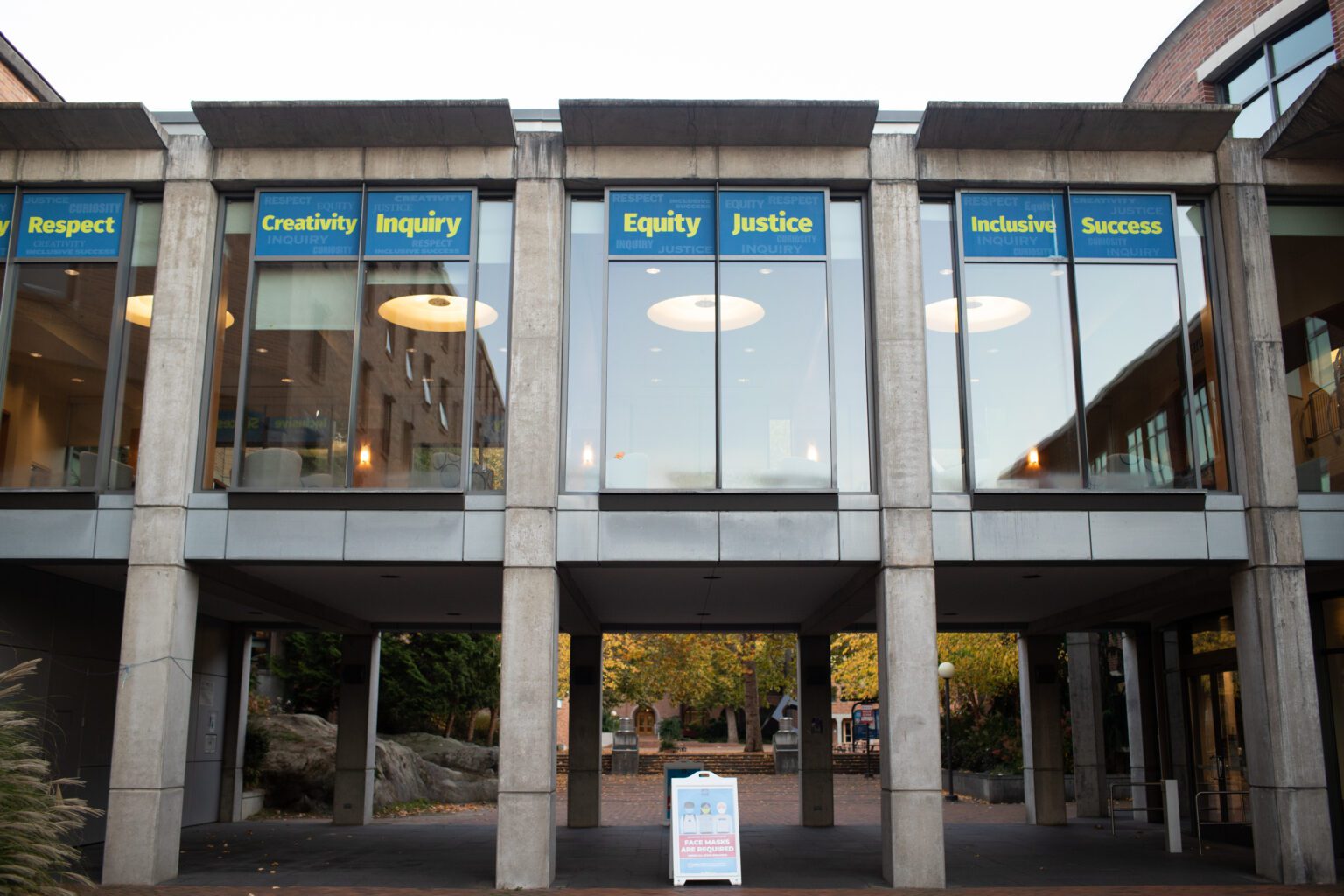When Nada Elia was hired by Western Washington University five years ago to be a professor at Fairhaven College of Interdisciplinary Studies, she had a goal in mind — to create an Arab American studies minor.
Prior to the creation of the minor, the university hosted an Arabic and Islamic studies minor, which included classes in Arabic, Middle East Studies and history of the region. Elia said while it’s a good program, it doesn’t cover the issues of those who immigrated to the U.S. from that region.
“The Arab-American community is very much part and parcel of American culture,” Elia said. “So, the courses that were being offered on campus were primarily courses about two continents away.”
Last year in her role as senior scholar of Muslim and Arab American studies, Elia began actively designing the new minor. She dug through course catalogs from the past several years to find courses that fit within the curriculum she designed. She reached out to other faculty and asked to include the classes within the program. On top of that, she created new courses to fill the gaps and build a robust course of study on the Arab American experience, like Arab and Arab-American feminism.
In the minor, students will have an “interdisciplinary exploration of Arab American histories, literatures and cultures” and will explore themes of immigration, Islamophobia, gender and sexuality, the impacts of war and much more, according to the program website.
Elia said one of the most important aspects of the new minor is that it focuses on Arab-American students and their experiences.
“They need to see themselves in the syllabus, in the curriculum, in the classroom, in the faculty,” Elia said.
Arab American studies is housed with the American cultural studies department in Fairhaven. Currently, students are able to get a bachelor’s degree in American cultural studies, where they can take courses like queer and LGBT politics and Asian-American history and minor in African American studies or Holocaust and genocide studies.
However, in the 2023–24 academic year, the university is aiming to transition American cultural studies into an ethnic studies department housed within Fairhaven and to begin hiring faculty to staff the department, Western Provost Brad Johnson said in an email.
The process will be similar — but more extensive — to the one Elia went through to create Arab American studies. Faculty, administration and students are planning to take the current fields of American cultural studies and connect them with themes like borders and immigration, policing and incarceration and feminism that connect the experiences of Black, Indigenous and people of color in the United States, Elia said.
The creation of the department follows decades of demands from students at Western.
“Everything I’m hearing from the students, it’s important that non-BIPOC students understand their experience,” said Ted Topper, an Associated Students senator for Fairhaven who is part of the effort to create the new department. “The most effective step forward is generating an idea of how to … decolonize the information that’s presented in the traditional academic format.”
In the fall of 1969, Western implemented an entire College of Ethnic Studies, along with two other “cluster” colleges — Fairhaven and the College of the Environment. In 1978, the college disbanded and the curriculum spread to other corners of the university, according to a 1993 case study by Western graduate student Maurice Bryan Jr.
Bryan asserts that budget, bigotry, high faculty turnover and “organizational structural barriers” led to the demise of the college.
In recent years, students have advocated for the reinstitution of the college, including it in the June 2020 list of demands written by the Black Student Organization. Johnson said the creation of the department was requested by the Associated Students and approved by the student body in the 2019-2020 academic year. By April 2021, the university — with significant input and work from students — secured more than $1 million from the state Legislature to fund an ethnic studies program in the state 2021–23 operating budget.
“To date, Western has used the funding to deliver a number of ethnic studies courses while the new ethnic studies unit is developed, and has funded course releases so that ethnic studies faculty could plan and create curriculum,” Johnson said.
When Western institutes the department, Elia asserts it will draw many current students to the program and new students to Western.
“I have no doubt that ethnic studies will attract a lot of students because they are hungry for the curriculum; they are hungry for courses that address their experiences, and address their experiences in a compassionate, activist, politically committed way,” Elia said.
Quincy Ingalls, the second Associate Students senator for Fairhaven, believes the increase in BIPOC education will benefit the entire student body. He said there needs to be more racial equity taught across campus, especially following the recent incidents of antisemitism and Islamophobia on campus.
Ingalls said he and other students are working with Western to diversify curriculum across campus, in line with another Black Student Organization demand.
“When I take main campus Western classes, I see so many opportunities for the professors to add in racial equity,” Ingalls said. “[In] every single class, I see an opportunity to talk about environmental racism, and it never comes up.”




